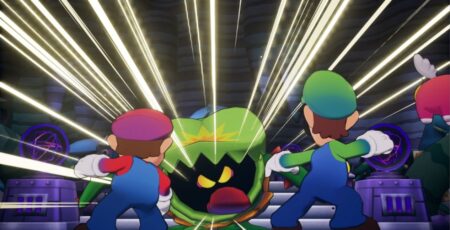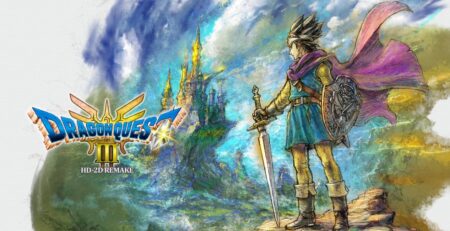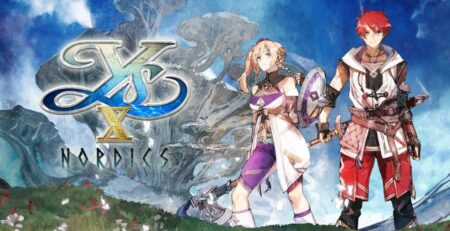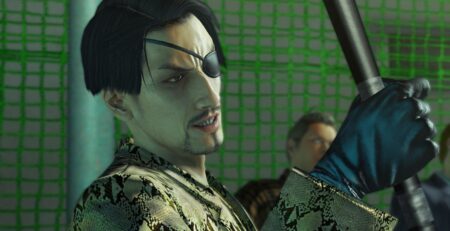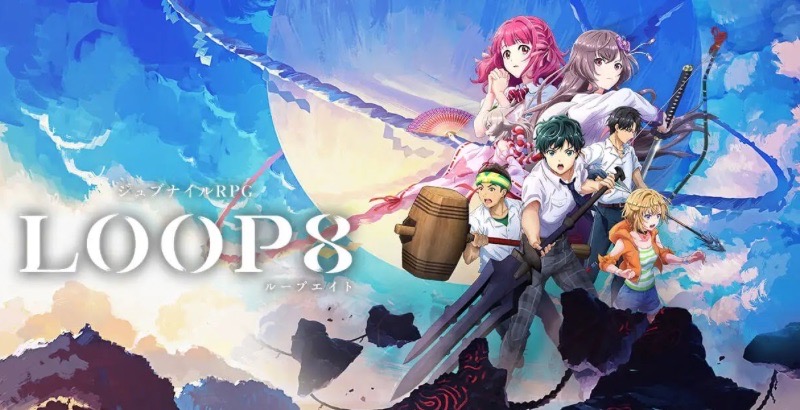
Loop8: Summer of Gods is publisher Xseed Games and developers Marvelous and SIEG Games’ latest JRPG that sports a cool concept and some engaging elements. Unfortunately, while nice, these features won’t be enough to distract players from the several other painful, unoptimized, and frustrating aspects the game forces you to deal with.
Loop8: Summer of Gods takes place in a world on the brink of extinction after being torn apart by demonic creatures known as the Kegai. The game follows Nini, a teenager who lived in a space station known as “Hope” for several years. However, he returns to Earth to spend his summer in Ashihara, one of humanity’s last remaining sanctuaries. Upon arriving, he soon encounters a Kegai threat and, after a series of events, finds out that he has a mysterious ability known as “Demon Sight,” which gives him Foresight and a special connection to the gods that grants him the power to reset the world when necessary. Nini will need to use this ability several times until he and his friends are able to defeat the Kegai that threatens the fate of Ashihara and the world.
The game begins by quickly introducing Nini, his background, and the small remote town of Ashihara. The rest of the story is a bit disjointed as players are left to fill in the blanks by engaging in dialogue with Nini’s teachers, classmates, and other characters to learn more about them and the world while progressing the story by defeating bosses. However, despite this, the overall plot is still sparse, and the narrative, for the most part, boils down to a character being possessed by a Kegai, which prompts Nini and a party of other chosen characters having to defeat them, and ends up with the character either dead or saved. This disappointing structure is repeated right up to the end of the game with not much variety.
Additionally, while not outwardly bad, the characters in the game are also very generic and tropey, which makes it hard to stay engaged with the plot. However, while the game’s story is a bit unimpressive, the concept is, at the very least, unique. To beat the game, players have five days to defeat each boss. Falling in battle or failing to do so on time will reset the world to the next loop. This concept introduces several frustrating gameplay issues.
Loop8 is a very challenging game. It has no difficulty options, and the game uses an in-game time system, so every action you take must be calculated. As such, defeating bosses is quite tough due to the short time it takes to prepare for them. To succeed, players will have to form bonds with several characters, especially those they wish to bring into battle with them through a Sims-like conversation system, where you and the character’s mood affect how close they get with each conversation. Forming bonds and getting closer to characters will make them stronger in battle. Talking to characters will also occasionally reward players with “blessings,” which basically serve as stat boosts for Nini and other characters. As players progress through the game, events will eventually trigger, opening a gate to the demonic realm, which is the equivalent to a dark mirror version of the game’s town where players will fight several demons and bosses.
The game uses a turn-based combat system with three attack types: Affection, Friendship, and Hate. The first two types provide regular damage, but hate provides extra damage at the risk of the enemy getting stronger with each attack. These attack types also come into play with the game’s character relationship chart. Because every boss is also a character, players will have to consider which characters they bring into the boss fight. If you add a character to your party that hates the boss, you’ll risk the player constantly using hate attacks at the detriment of your run. However, bringing in characters with a good relationship with the boss will significantly reduce that risk.
The problem with this mechanic, however, is that players will have to tediously juggle interacting with characters and growing bonds, with training to increase health and attending classes to increase MP, which, in this game, is called Stamina and Energy. This is critical because bosses are incredibly tough, and the fact that players cannot control party members or even set strategies makes boss fights even more challenging. Instead, players will have to use the aforementioned Foresight mechanic to see what party members plan on doing, and then act accordingly.
This system also doesn’t work very well, as the character AI is incredibly bad. At least half the time you fight a boss, characters will spam unneeded buffs on Nini and on each other instead of attacking the boss. So bosses that should take five minutes will instead take 15 as you’ll frequently have to sit through several turns of taking damage and watching party members spamming attack buffs when you’re healing and defense buffs when you’re attacking. And because the AI is also inconsistent in its mediocrity, some boss attempts will have party members spamming buffs while other attempts will see them actually attacking the boss. It’s easier to reset saves and hope to get better RNG.
The only way to prevent a character’s death in battle is to restore Energy and Stamina mid-fight by sacrificing your Energy or a turn and by defending a party member that’s low on health when an enemy is about to attack them. There’s no way of defending yourself via a guard system, no restorative or buff items, and no way of reviving party members, so if anyone dies during battle, they are dead for the rest of the game and that is reflected in the game’s story. What’s more, the game’s combat elements also make players feel like they are controlling a support character as the foresight mechanic forces them to act according to the AI and not the other way around. Nini has more buff and restorative skills compared to regular attacks, at least for the first half of the game, and the attacks he does have are incredibly weak compared to other characters, regardless of how much you train.
What makes this all worse, however, is that players who want a good ending and want to prevent character deaths will have to restart boss fights every time a party member dies in battle, as it means they’ll be dead or the rest of the game, and to make things even worse, many bosses in the game are also characters. So if a player doesn’t have a bond with a character that gets possessed, Nini will kill the character, rendering all the progress and pain endured to defeat the boss useless. Also, you won’t know which character will be possessed until it happens, so if you have not formed any bond with them, you’re essentially screwed, and I learned this the hard way through the second boss in the game. Lastly, you also can’t choose what skills you get after fighting enemies, as there’s no skill tree or proper leveling mechanic. Instead, players will occasionally be told at the start of the day what new skill Nini and the other characters have acquired after the necessary training and befriending.
The awful combat system isn’t where all of Loop8‘s issues lie, as players will also have to deal with painfully slow movement speed with no sprint button, janky character motions that look awful with the game’s 3D models, choppy frame rate, at least on the Nintendo Switch, and to top it off, the game has a load screen for almost every action you take.
However, while the game can be tedious, frustrating, and is in bad shape performance-wise, there are still some good qualities to it. Loop8 features a nice, relaxing soundtrack, especially during downtime outside battles when exploring the town and talking to characters. The game also sports stellar art direction with many picturesque backdrops. The character designs are also distinct and intricate, at least for the characters not just wearing school uniforms. Lastly, both the English and Japanese voice cast did a fantastic job voicing the characters. However, it is unfortunate that the game is only partially voiced, so you won’t get to hear them that often.
While Loop8: Summer of Gods is a JRPG that has an interesting concept and some genuinely good features, the game is unfortunately bogged down with poor optimizations, questionable gameplay decisions, and a very painful combat system. As such, it’s almost impossible to recommend the game to anyone not looking for an unreasonably challenging experience, especially in its current state.
Loop8: Summer of Gods is will launch on June 6 for PlayStation 4, Xbox One, and Nintendo Switch.
Rating
-
Loop8: Summer of Gods - 4/104/10
TL;DR
While Loop8: Summer of Gods is a JRPG that has an interesting concept and some genuinely good features, the game is unfortunately bogged down with poor optimizations, questionable gameplay decisions, and a very painful combat system.

